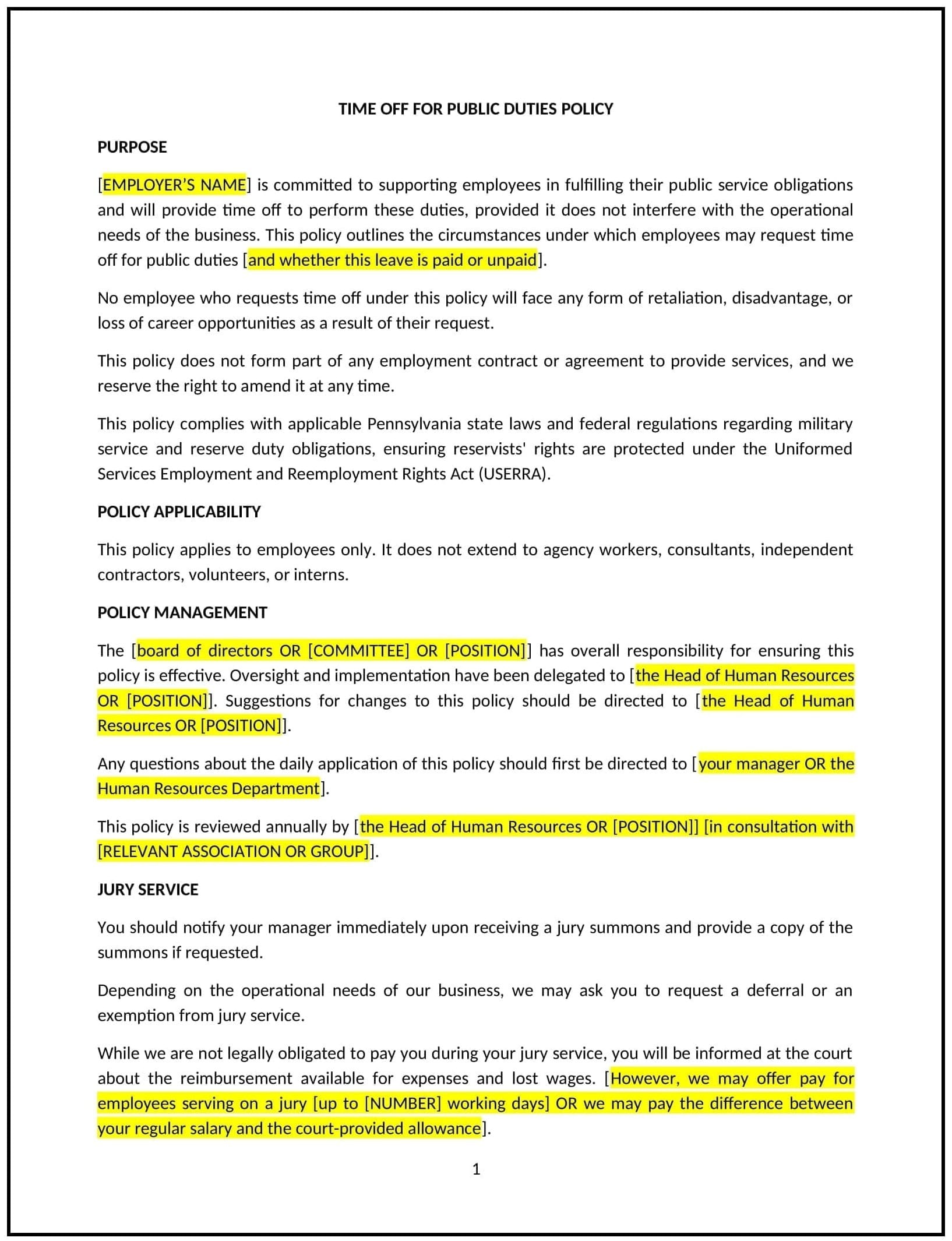Time off for public duties policy (Pennsylvania): Free template
Got contracts to review? While you're here for policies, let Cobrief make contract review effortless—start your free review now.

Customize this template for free
Time off for public duties policy (Pennsylvania)
This time off for public duties policy is designed to help businesses in Pennsylvania provide clear guidelines for employees seeking time off to fulfill public service responsibilities. Whether employees are serving on a jury, acting as election officials, or participating in other civic duties, this template ensures fairness and compliance with Pennsylvania labor laws.
By using this template, businesses can support civic engagement, maintain compliance, and balance operational needs.
How to use this time off for public duties policy (Pennsylvania)
- Define eligible duties: Clearly specify the types of public duties covered under this policy, such as jury duty, serving as a poll worker, or attending public hearings.
- Outline application procedures: Provide steps for employees to request time off, including advance notice and documentation requirements.
- Address pay entitlements: Specify whether time off for public duties is paid or unpaid, based on Pennsylvania labor laws and company policy.
- Include job protection: Highlight employees’ rights to return to their roles after fulfilling public duties, in compliance with state and federal regulations.
- Reflect Pennsylvania-specific considerations: Tailor the policy to include local requirements, such as time off for election-related activities or other civic obligations unique to the state.
Benefits of using a time off for public duties policy (Pennsylvania)
A well-structured time off for public duties policy supports civic responsibility and operational consistency. Here's how it helps:
- Encourages civic engagement: Supports employees in fulfilling their public responsibilities without jeopardizing their employment.
- Promotes fairness: Establishes consistent guidelines for granting time off for public duties.
- Supports compliance: Aligns with Pennsylvania labor laws and federal regulations regarding public service leave.
- Protects employee rights: Ensures employees are not penalized for taking time off to fulfill civic obligations.
- Reflects local needs: Addresses Pennsylvania-specific requirements, such as time off for jury duty or election-related activities.
Tips for using a time off for public duties policy (Pennsylvania)
- Communicate the policy: Share the policy with employees during onboarding and ensure they understand their rights and responsibilities regarding public duties leave.
- Require documentation: Ask employees to provide proof of their public service, such as jury summonses or confirmation of participation in civic activities.
- Train managers: Equip supervisors with the knowledge to handle leave requests fairly and consistently while balancing operational needs.
- Plan for coverage: Develop strategies to manage workloads and minimize disruptions when employees take time off for public duties.
- Review periodically: Update the policy to reflect changes in Pennsylvania labor laws, civic obligations, or business needs.